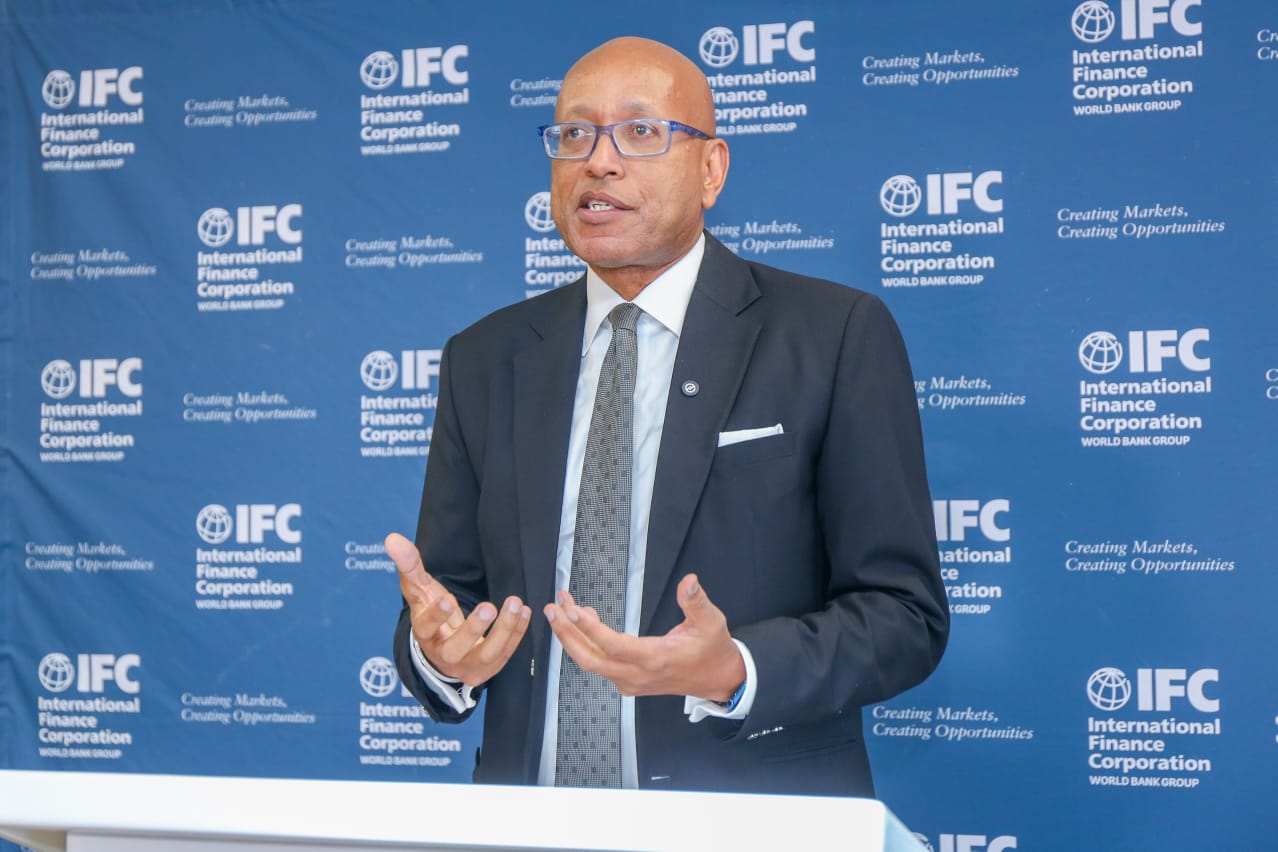IFC Vice President Calls for Africa to Finance Its Own Future Ahead of Casablanca Summit
By Njeri Irungu.
Nairobi, Kenya – 2nd October 2025 – At a press briefing ahead of the Africa Financial Summit (AFIS) scheduled for November 3–4 in Morocco, Ethiopis Tafara, the International Finance Corporation’s (IFC) Vice President for the Africa Region, delivered a clear and urgent message: Africa must harness its own capital to build a sustainable and inclusive future.
Speaking with conviction, Tafara underscored that the continent’s demographic realities leave no room for complacency. “Every year, millions of young Africans enter the job market,” he said. “Seventy percent of our population is under the age of 30, and nearly half are under 15. Job creation is not optional it is an imperative for stability and growth.”
The upcoming summit in Casablanca, co-hosted by IFC and Jeannette Peek, will bring together policymakers, financiers, business leaders, and regulators to explore how to unlock private capital at scale. Tafara stressed that Africa’s growth cannot remain dependent on external flows of money. Instead, the continent must mobilize domestic resources and strengthen its financial systems to drive development.
Energy as the Foundation of Growth
Among the priorities Tafara outlined, energy stands at the forefront. Citing IFC’s flagship M300 initiative, he noted that 600 million Africans still live without electricity. The initiative’s goal is to connect 300 million people by 2030 through a mix of traditional, off-grid, and mini-grid solutions. “Without energy, development is not possible,” Tafara declared. “Electrification is the foundation of job creation.”
SMEs: Africa’s Job Engine
Tafara also highlighted the urgent need to expand financing for small and medium-sized enterprises (SMEs), which generate up to 90 percent of jobs across Africa. Access to affordable credit remains a stumbling block for entrepreneurs, but IFC is experimenting with new approaches.
In Tanzania, IFC supported the first-ever gender bond in Sub-Saharan Africa, unlocking loans for more than 3,200 women-led businesses. In Kenya, a $140 million partnership with Cooperative Bank is enabling SMEs and women-owned enterprises to expand. In Ethiopia, IFC extended its first local currency loan to Vision Fund Microfinance, broadening access to credit for thousands of small businesses.
Tafara acknowledged concerns over high interest rates but stressed that IFC’s role is to work with banks, non-bank financial institutions, fintechs, and even agricultural technology firms to lower risk and improve affordability. “Part of our job is to prepare SMEs for financing,” he explained. “Banks will lend if they believe SMEs are ready if they manage their cash flows, their accounting, and their reserves. That’s why we are building risk-sharing facilities and supporting innovations that strengthen the entire ecosystem.”
Agriculture, Tourism, and Digitalization
Beyond SMEs, Tafara outlined additional pillars of IFC’s Africa strategy. Agriculture, with 65 percent of the world’s remaining arable land located on the continent, is both an opportunity and a challenge. IFC is partnering with AgTech companies that use satellite data to assess farmers’ needs and provide inputs like seeds and fertilizer information that also improves credit assessments by banks.
Tourism, already a global growth driver, remains underdeveloped in Africa, attracting only 5 percent of international arrivals. Tafara sees enormous room for expansion, noting its role in creating jobs across transport, hospitality, and services. “We want to raise Africa’s share of global arrivals significantly in the next five years,” he said, framing tourism as a vast ecosystem of opportunity.
Digitalization and infrastructure, he added, are essential for connecting people to markets. “One of the most important things we must do is connect markets to markets—through both physical and digital infrastructure,” Tafara said. “That requires roads, ports, airports, but also digital payment systems and e-commerce platforms.”
Why AFIS Matters
For Tafara, the Africa Financial Summit is not just another conference it is a platform to translate vision into action. Delegates will discuss innovations in sustainable finance, from green and gender bonds to sustainability-linked investments. Several major signings are expected, including new partnerships with African banks stepping into roles once held by international lenders.
He also emphasized the role of Kenyan banks, widely recognized for their digital finance innovation and strong balance sheets. AFIS will provide them with an opportunity to showcase their leadership, expand into new regional markets, and shape policy frameworks that will define the continent’s financial future.
“This summit is about building Africa’s economic sovereignty,” Tafara concluded. “It is about ensuring that we can finance our future on our own terms by mobilizing our own capital, strengthening our banks, deepening our capital markets, and expanding financial inclusion. Africa has the resources. Now it is time to put them to work.”
As Casablanca prepares to host AFIS 2025, the momentum is building. For many, the summit represents not only an exchange of ideas but also a turning point a chance for Africa to claim the financial independence it has long sought.









